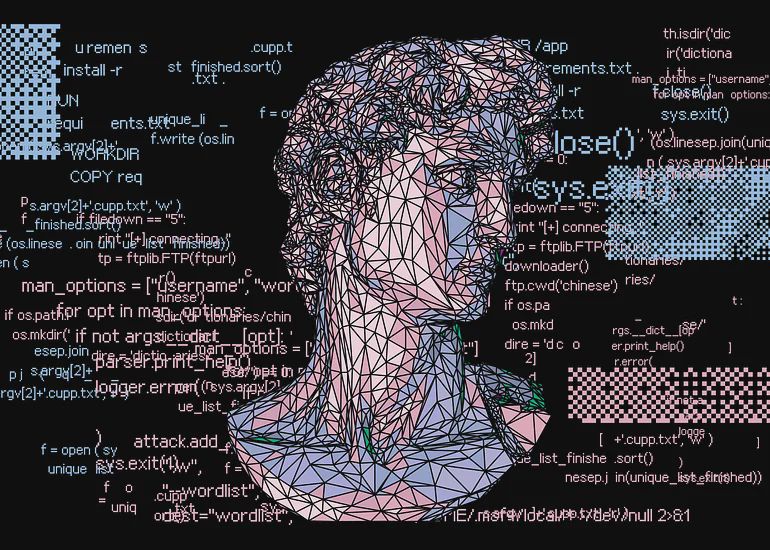CAIML Symposium 2022
The Center for Artificial Intelligence and Machine Learning holds a symposium on cutting-edge issues in AI research and development.

On May 24th, 2022, the first CAIML Symposium took place starting with two colloqium talks by Pedro Cabalar and Mohammad Ghavamzadeh. Afterwards, together with TU Wien Informatics and the Institute for Human Sciences (IWM), we hosted the first public lecture within the Digital Humanism Fellowship Program at TUtheSky, given by Edward A. Lee.
Knowledge-Based AI as a mould of Human Reasoning
Abstract
In the last decade, Artificial Intelligence, or AI, has definitely come out from the research arena to become a disruptive technology in the socioeconomic sphere, with uncountable applications in main sectors such as industry, finance, health, digital media, security, transportation or leisure. Most of the new uses of AI are focused on the application of predictive machine learning, due to the available accurate tools that can be easily trained on massive amounts of data. However, other equally important disciplines of AI have kept successfully evolving during the last years as well, although perhaps with a more limited popularity. This is the case of Knowledge Based AI (KBAI), where tools use an explicit, formal representation of knowledge and are capable of performing different logical reasoning tasks, providing declarative problem solving capabilities. In this talk, I will discuss not only how KBAI can help humans to communicate with automated intelligent systems, but also how KBAI formalisations can help humans to understand, clarify and, eventually, mould their own natural reasoning. To illustrate this idea, I will use some humble examples from my own research, including work on rule-based, temporal, spatial, epistemic or causal reasoning, all of them relying on the paradigm of logic programming as a basis.
About Pedro Cabalar
Pedro Cabalar is an associate professor at the Computer Science and Information Technology Department, University of A Coruña, Spain. His research interests are focused on Artificial Intelligence and Knowledge Representation and Reasoning with special emphasis on temporal, causal, epistemic and qualitative spatial reasoning, mostly using non-classical logics and logic programming. Many of his contributions are related to logical foundations and extensions of Answer Set Programming. During the last 25 years, Pedro Cabalar has collaborated with more than twenty coauthors from universities of nine different countries, publishing in the most relevant journals and conferences of Knowledge Based Artificial Intelligence and Logic Programming. Pedro Cabalar has been principal investigator of five national research projects related to Knowledge Representation and Automated Reasoning with applications to the medical domain. He is currently a workgroup leader in the European COST Action DigForASP, on Automated Reasoning applied to Digital Forensics.
Handling Constraint in Stochastic Bandits
Abstract
Many applications in health care, investment, and recommendation systems require optimizing over multiple objectives, some of which only appear as constraints. In constrained bandits, the agent should satisfy certain operational constraints while maximizing its cumulative reward. Depending on the form of the constraint, several constrained bandit settings have been formulated and analyzed. In this talk, we study two such problems that we refer to as “conservative exploration” and “stage-wise linear”. In conservative exploration, the constraint is history-dependent, which means it applies to a cumulative quantity over the entire run of the algorithm. On the other hand, in stage-wise linear, the constraint is independent of the past and applies to a quantity related to the distribution of the action (arm) that has just been selected. For each formulation, we derive an algorithm, provide a regret analysis, discuss the conditions under which the algorithm is tractable, identify the quantities that define the complexity of the problem, and provide some empirical results.
About Mohammad Ghavamzadeh
Mohammad Ghavamzadeh received a Ph.D. degree from UMass Amherst in 2005. He was a postdoctoral fellow at UAlberta from 2005 to 2008. He was a permanent researcher at INRIA from 2008 to 2013. He was the recipient of the “INRIA award for scientific excellence” in 2011, and obtained his Habilitation in 2014. Since 2013, he has been a senior researcher at Adobe and FAIR, and now a senior staff research scientist at Google. He has published over 100 refereed papers in major machine learning, AI, and control journals and conferences. He has co-chaired more than 10 workshops and tutorials at NeurIPS, ICML, and AAAI. His research has been mainly focused on the areas of reinforcement learning, bandit algorithms, and recommendation systems.
Limits of Machines, Limits of Humans
Absract
“Rationality” in Simon’s “bounded rationality” is the principle that humans make decisions based on step-by-step (algorithmic) reasoning using systematic rules of logic to maximize utility. “Bounded rationality” is the observation that the ability of a human brain to handle algorithmic complexity and data is limited. Bounded rationality, in other words, treats a decision-maker as a machine carrying out computations with limited resources. In this talk, I will argue that the recent breakthroughs in AI demonstrate that much of what we consider “intelligence” is not based on algorithmic symbol manipulation, and that what the machines are doing more closely resembles intuitive thinking than rational decision making. Under this model, the goal of “explainable AI” is unachievable in any useful form.
About Edward Lee
Edward Ashford Lee has been working on software systems for 40 years. He currently divides his time between software systems research and studies of philosophical and societal implications of technology. After education at Yale, MIT, and Bell Labs, he landed at Berkeley, where he is now a Professor at the Graduate School in Electrical Engineering and Computer Sciences. His software research focuses on cyber-physical systems, which integrate computing with the physical world. He is the author of several textbooks and two general-audience books: “The Coevolution: The Entwined Futures and Humans and Machines” (2020) and “Plato and the Nerd: The Creative Partnership of Humans and Technology” (2017).
Video
If you watch this video, data may be transmitted to third parties.
Watch on YouTube: https://youtu.be/a6Ni_5c1m3A
If you watch this video, data may be transmitted to third parties.
Watch on YouTube: https://youtu.be/c3Cwu1BJVPs

